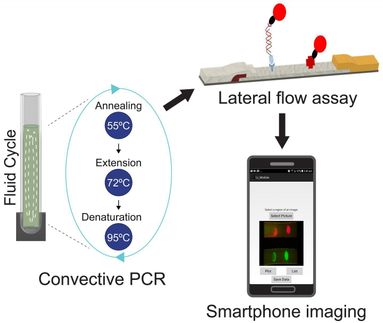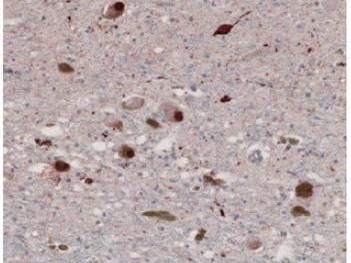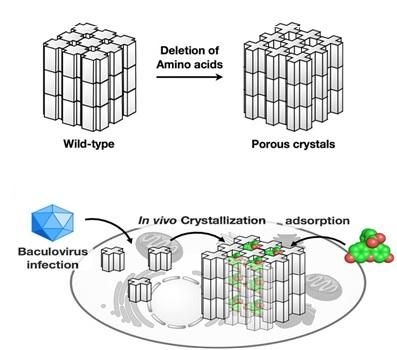Synthetic biology reveals the secrets of life without oxygen
ERC Advanced Grant for natural product researcher Christian Hertweck
The “AnoxyGen” project will decode novel active substances of anaerobes and elucidate their role in nature. Some of these could be useful for humans, animals and the environment. Christian Hertweck has been awarded one of the ERC Advanced Grants by the European Research Council (ERC). In the project, he wants to investigate the unique biosynthetic pathways and active compounds of anaerobic bacteria in order to better understand their role in nature and make them usable for medical, ecological and biotechnological applications. Hertweck heads the Department of Biomolecular Chemistry at the Leibniz Institute for Natural Product Research and Infection Biology – Hans Knöll Institute (Leibniz-HKI) and is Professor of Natural Product Chemistry at Friedrich Schiller University Jena.

Prof. Dr. Christian Hertweck, head of the Department of Biomolecular Chemistry at the Leibniz-HKI and professor of Natural Product Chemistry at the Friedrich Schiller University Jena, has been awarded one of the prestigious ERC Advanced Grants by the European Research Council.
Anna Schroll/Leibniz-HKI
Long before photosynthesis brought free oxygen into the world, the earth was already populated by numerous organisms. Oxygen was life-threatening for them and therefore they developed completely different metabolic pathways to those we know from plants, animals and humans. Anaerobic bacteria have survived the ages in special, oxygen-free niches, some of them very close to us: as an essential part of the intestinal microbiome, where they are of enormous importance for the well-being of the organism. However, certain anaerobes can also trigger life-threatening diseases such as tetanus or botulism. These bacteria therefore have a considerable influence on the quality of life on earth and occupy a key position in the environment. Their special metabolism also makes them sought-after tools in biotechnology.
The “AnoxyGen” project aims to unlock the immense, previously untapped biosynthetic potential of anaerobes. Despite their genome-encoded ability to form novel compounds, most of these biosynthetic genes are inactive in the laboratory, so the products have so far remained undiscovered.
Hertweck and his team now want to change this. Using newly developed molecular and synthetic biology tools, the researchers want to decode and harness the still unknown metabolic pathways of these bacteria. The project encompasses several areas of work in which a powerful expression system is used to identify and modify new active compounds. This will also enable the team to produce and research the toxins and virulence factors of pathogenic anaerobes without having to cultivate large quantities of the pathogens themselves.
“With this project, we want to provide novel methods and tools for the scientific community. We hope that ‘AnoxyGen’ will be of great benefit, particularly for medicine, but also for ecology and biotechnology,” explains Hertweck. “Anaerobic bacteria are still under-researched, but their metabolic processes offer great potential for the discovery of new active compounds. We can also gain new insights into their role as pathogens.” Hertweck, who has already been awarded the Gottfried Wilhelm Leibniz Prize and the Ernst Jung Prize for Medicine for his great scientific creativity in identifying new active compounds from neglected microorganisms, is also strengthening the Balance of the Microverse Cluster of Excellence, which studies the formation and balance of microbial communities, with this project. Anaerobic bacteria have so far played a subordinate role there, partly because they were difficult to access methodologically. The researcher now wants to close this gap.
The ERC Advanced Grant, one of the most prestigious grants of the European Union, recognizes the excellence and innovation of top researchers. Christian Hertweck’s “AnoxyGen” project was selected due to its great prospects for expanding our understanding of microbial biosynthesis and developing new biotechnological applications. With comfortable financial resources, the researcher and his interdisciplinary team will be tackling this topic over the next five years.
Most read news
Topics
Organizations

Get the analytics and lab tech industry in your inbox
By submitting this form you agree that LUMITOS AG will send you the newsletter(s) selected above by email. Your data will not be passed on to third parties. Your data will be stored and processed in accordance with our data protection regulations. LUMITOS may contact you by email for the purpose of advertising or market and opinion surveys. You can revoke your consent at any time without giving reasons to LUMITOS AG, Ernst-Augustin-Str. 2, 12489 Berlin, Germany or by e-mail at revoke@lumitos.com with effect for the future. In addition, each email contains a link to unsubscribe from the corresponding newsletter.

























































